How Tom Hiddleston’s Loki went from Thor’s misfit brother to MCU darling
Despite having always been confined to subplot, Loki has spawned an endless stream of gifs, Tumblrs and fan art. Clémence Michallon follows the antihero on his path to becoming one of the most compelling characters in the Marvel franchise

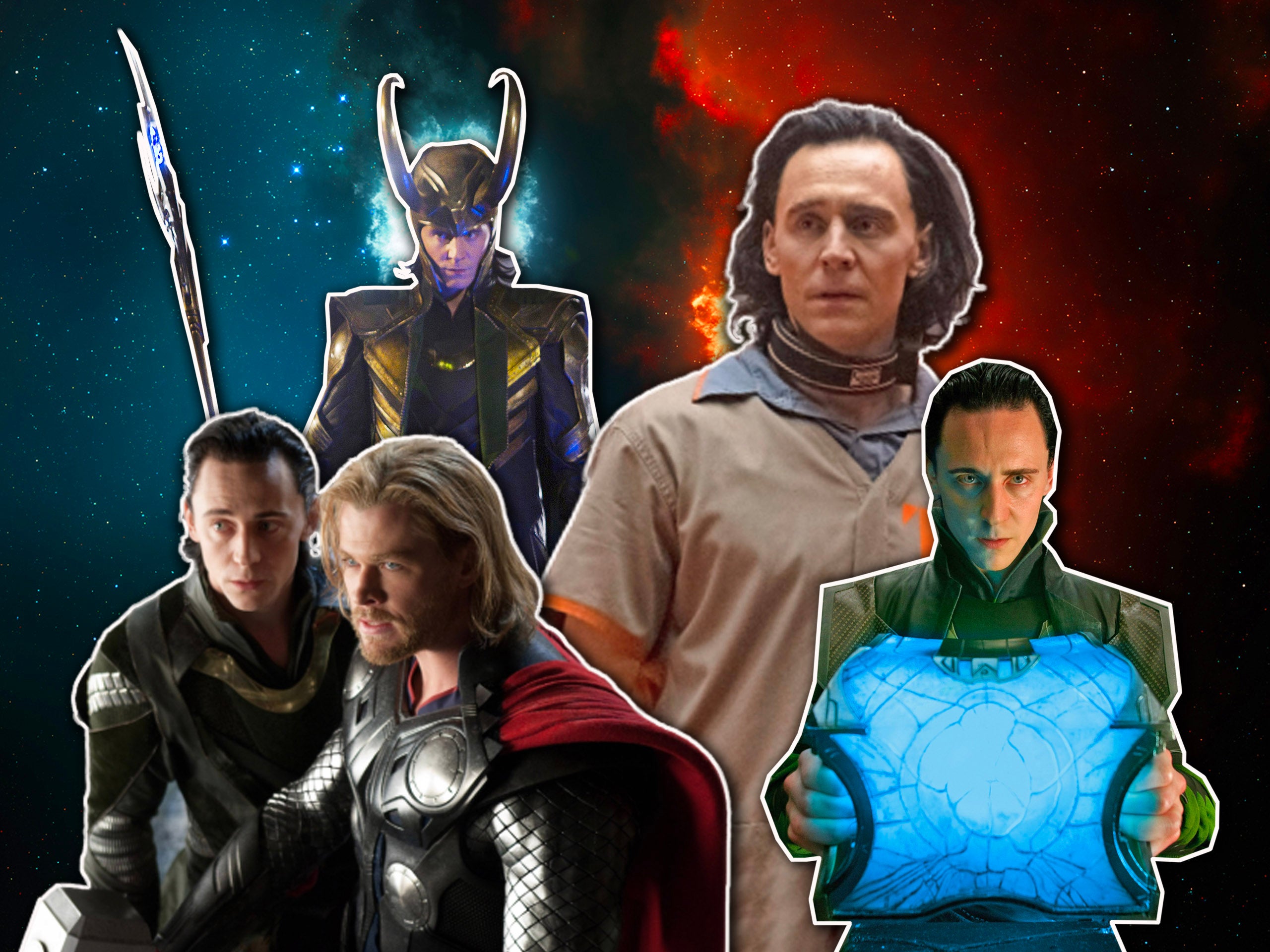
Your support helps us to tell the story
From reproductive rights to climate change to Big Tech, The Independent is on the ground when the story is developing. Whether it's investigating the financials of Elon Musk's pro-Trump PAC or producing our latest documentary, 'The A Word', which shines a light on the American women fighting for reproductive rights, we know how important it is to parse out the facts from the messaging.
At such a critical moment in US history, we need reporters on the ground. Your donation allows us to keep sending journalists to speak to both sides of the story.
The Independent is trusted by Americans across the entire political spectrum. And unlike many other quality news outlets, we choose not to lock Americans out of our reporting and analysis with paywalls. We believe quality journalism should be available to everyone, paid for by those who can afford it.
Your support makes all the difference.He is Loki of Asgard, and – despite what has become his catchphrase – he wasn’t always burdened with glorious purpose.
After a decade of hovering at the edges of the Marvel Cinematic Universe, Tom Hiddleston’s character is finally taking centre stage. While the camera has until now remained firmly trained on the MCU’s ever-expandable cohort of Avengers, Loki, one of the franchise’s most infamous villains, is the subject of the new, eponymous Disney+ series.
The show, also starring Owen Wilson, Gugu Mbatha-Raw, and Wunmi Mosaku, is an offshoot of a brief scene in Avengers: Endgame, during which Loki steals the Tesseract (a powerful cube that enables inter-dimensional travel) and escapes from custody. In Loki, the God of Mischief is once again captured, this time by the Time Variance Authority, a shockingly bureaucratic organisation in charge of monitoring the multiverse’s timelines. Having messed with reality, Loki is offered a choice: he can risk having his entire existence deleted, or he can help the TVA catch a greater threat.
It’s pretty perfect for Loki, the show, to have grown out of a storytelling anomaly. Because Loki, the character, is in many ways a beautiful accident too. Since he was first introduced in the 2011 Thor, Loki has survived several on-screen deaths, rising from secondary character to MCU darling. Despite having always been confined to subplot, he has spawned an endless stream of gifs, Tumblrs, fan art, cosplays, and YouTube montages of his best scenes. The antihero has become one of the most compelling characters in the Marvel franchise – edgier than a Captain America, far less self-righteous than an Iron Man. He is the itch that every Marvel fan, on some level, wants to scratch.
“Everybody loves a villain,” says Gugu Mbatha-Raw, who portrays the authoritative Ravonna Renslayer in Loki. “Everybody enjoys an antihero. And people love to live vicariously through mischievous characters and think, ‘Gosh, I wish I could be like that and get away with it. I wish I could have that charm and those magical powers.’ And underneath it all, [Loki] is quite an insecure guy. He lived in the shadow of his brother for so long, so there is that relatable family dynamic as well.”

None of this was truly supposed to happen. Hiddleston, a classically trained, London-born actor with an extensive stage background (he was Cassio in Othello at the Donmar Warehouse in 2008, Prudence in The Children’s Monologues at the Old Vic, and Hamlet in a 2017 production at the Royal Academy of Dramatic Art, his alma mater), originally auditioned for the role of Thor. The tapes from that audition are legendary among the Marvel fandom. Hiddleston, wearing a tank top and a blonde wig, can be seen wielding Thor’s hammer, attempting to impersonate the God of Thunder – but it’s apparent even in those early clips that the role wasn’t the right fit, and that Hiddleston had something much different to contribute to the MCU.
The part of Thor went to Chris Hemsworth, which was probably for the best. But Kevin Feige, the president of Marvel Studios, asked Hiddleston if he’d like to portray Thor’s trickster sibling instead. Hiddleston agreed, and by his own account, didn’t immediately grasp what an impact that choice would have on his career. Fans had no idea what was coming for them either.
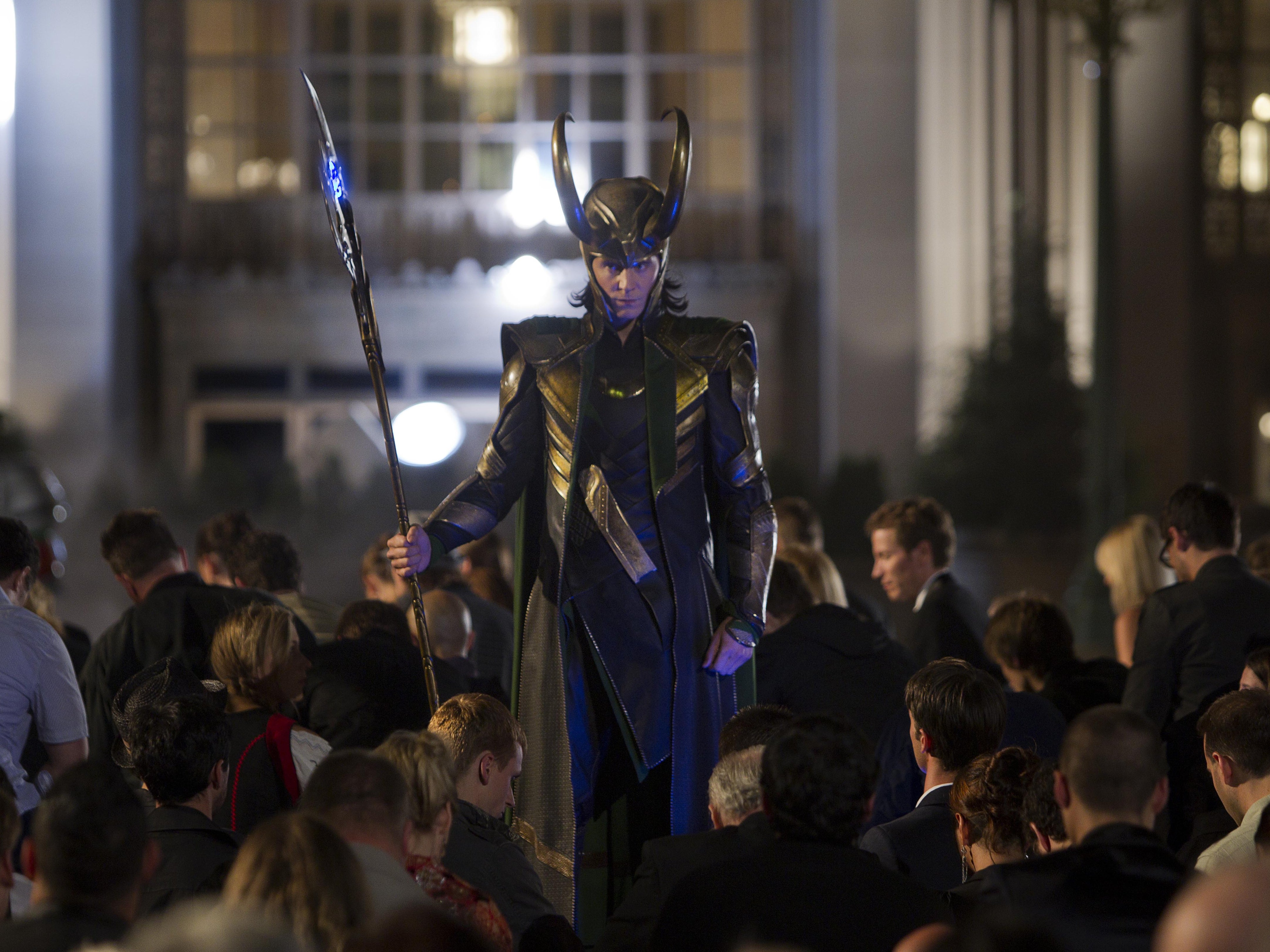
Before Thor started filming, Feige told Hiddleston how instrumental he envisioned Loki being in the MCU. The actor couldn’t quite wrap his brain around it. “I was like, ‘Excuse me?’ Because he was already three, four steps ahead,” he told Entertainment Weekly. “That took me a few minutes to process, because I didn’t quite realise how it just suddenly had a scope. And being cast as Loki, I realised, was a very significant moment for me in my life, and was going to remain. The creative journey was going to be so exciting.”
And it has been. Loki’s trajectory in the MCU has been sprinkled with surprises, plot twists, and the kind of character development that deliciously toys with fans’ emotions. Shortly after joining the franchise, Loki died – again and again. He died in Thor in 2011, and he died in Thor: The Dark World in 2013. The first death, it seems, was always designed to be temporary: an after-credit scene in Thor showed Loki alive and well. The second one, though? That one was meant to be permanent, until it became apparent that fans weren’t ready to quit the God of Mischief.

Watch Apple TV+ free for 7 days
New subscribers only. £8.99/mo. after free trial. Plan auto-renews until cancelled

Watch Apple TV+ free for 7 days
New subscribers only. £8.99/mo. after free trial. Plan auto-renews until cancelled
“It was part of the original pitch and in test screenings, the audience didn’t accept it,” Hiddleston told Empire in 2018. “They said, ‘He’s obviously coming back. That didn’t really happen.’ And there was a very strange and almost unanimous resistance to it. They decided that wasn’t the end.”
That fans weren’t ready to let Loki die is hardly surprising, looking back on the state of the MCU in 2013. By then, Loki had been developed over the course of two films: Thor in 2011 and, crucially, The Avengers in 2012. Loki is the main antagonist in The Avengers, having decided that the best way to deal with his personal issues is – in classic movie villain fashion – to subjugate Earth. There is something ticklingly meta about that storyline: the audience, obviously, is on the terrestrial side. In the film’s world building, they’d be on the receiving end of Loki’s evil plan, counting on the honourable Avengers to defend them. And Loki is truly an infuriating villain in The Avengers. Hiddleston brings to life his hubris, his selfishness, his ruthlessness. But there is so much more to his performance, beginning with comic timing.
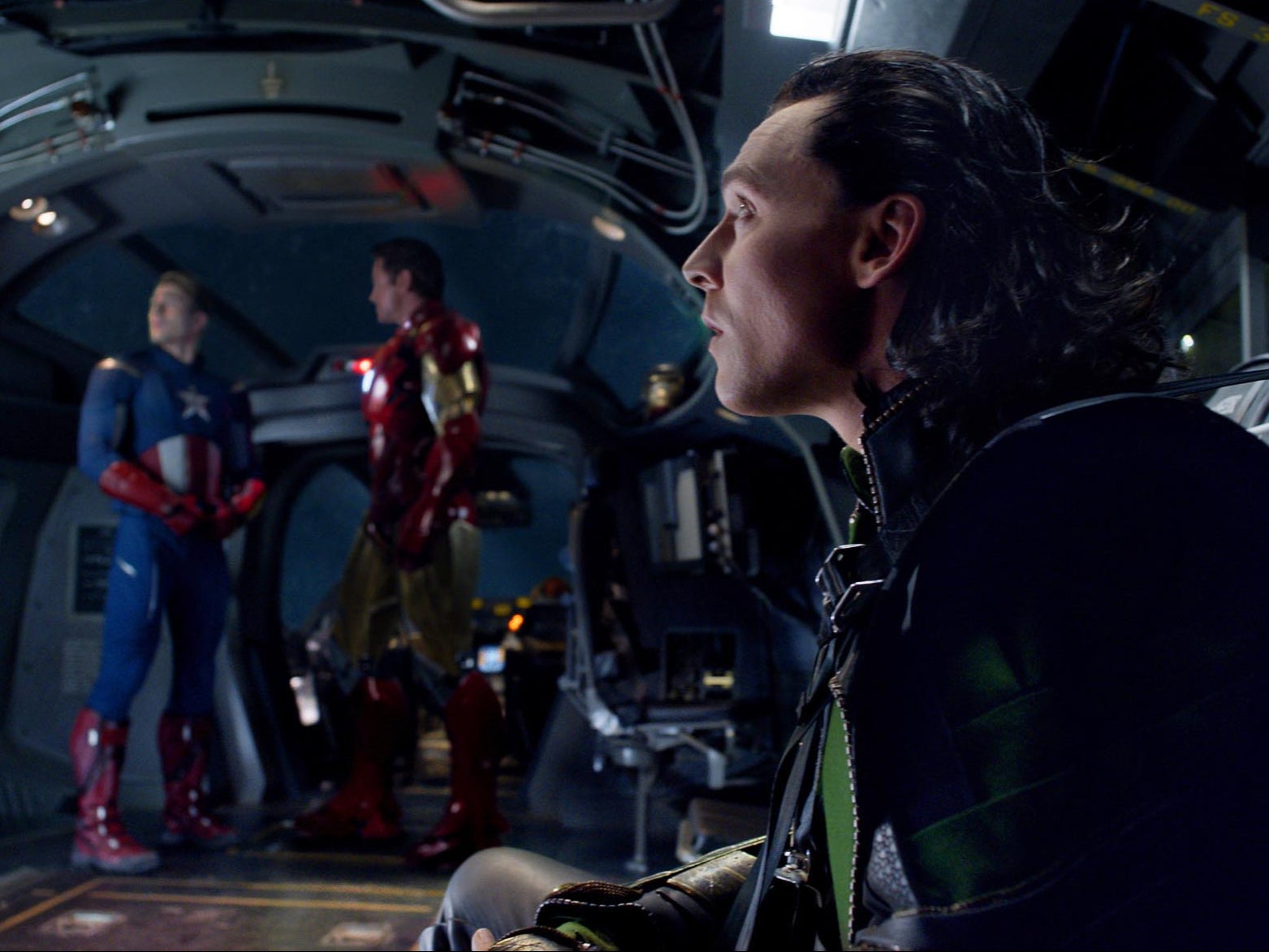
In one scene, Loki, having once again been captured by the good guys, sits in an aircraft carrier when a storm starts brewing, shaking the plane. “What’s the matter? Scared of a little lightning?” Chris Evans’s Captain America asks with just a touch of machismo. “I’m not overly fond of what follows,” Loki retorts stoically. “What follows” turns out to be his brother Thor, who pries Loki from the aircraft by the throat and abducts him to a different location. The moment is brief, but you’ll find it in plenty of videos should you decide to search “Loki best scenes” on YouTube. It’s revealing of what Hiddleston’s performance has brought to the MCU: flashes of cleverness and comic relief balancing out the inherent hamminess of superhero movies.
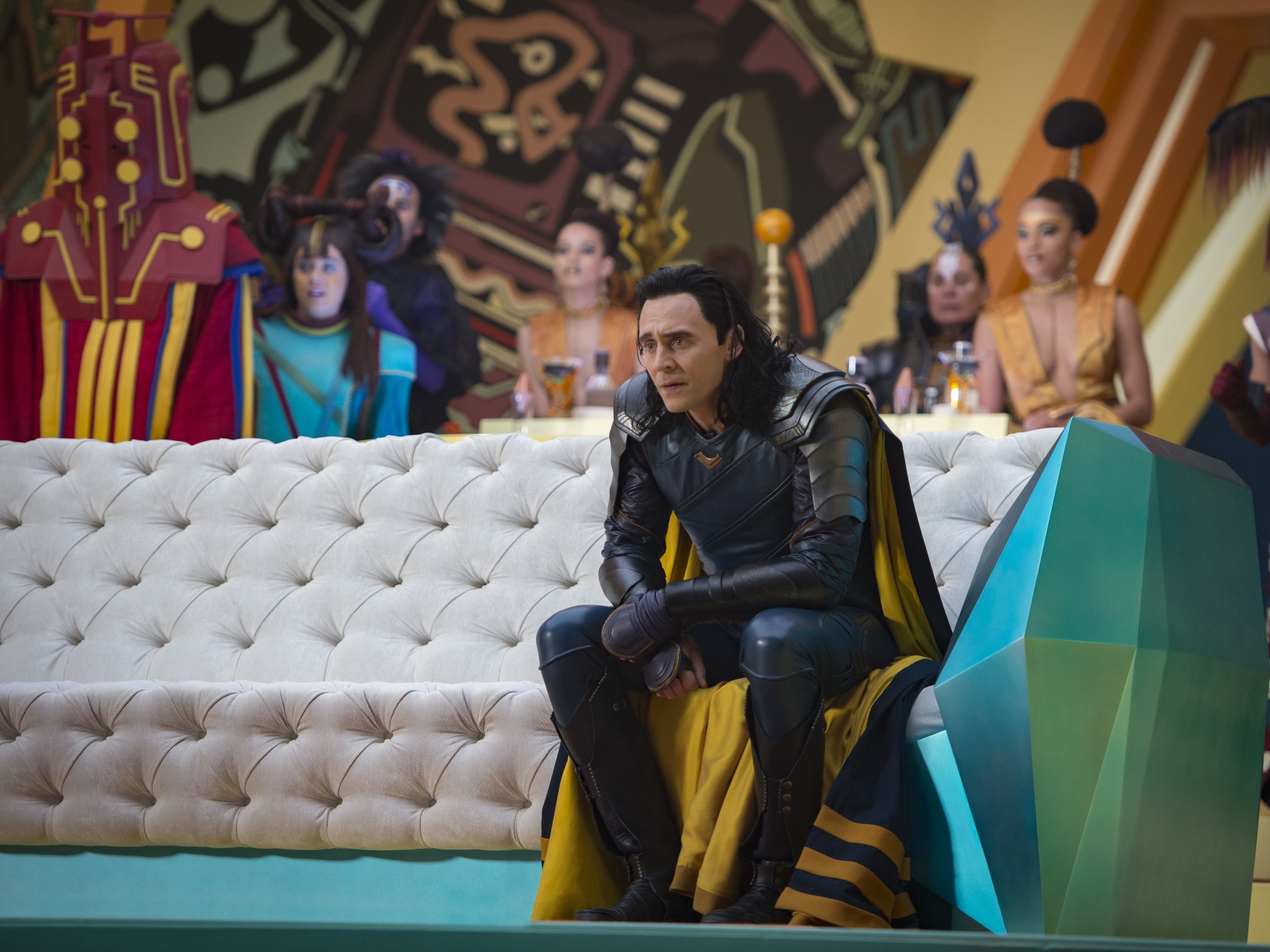
Hiddleston’s stage background fits brilliantly in the picture, too. It’s what enabled him to hold his own next to Anthony Hopkins’s Odin (Thor and Loki’s father). It’s palpable in The Avengers as well, when Loki, having demanded a crowd of earthlings kneel before him, monologues: “Is not this simpler? Is this not your natural state? It’s the unspoken truth of humanity, that you crave subjugation.” It’s not quite Hamlet’s soliloquy, but Hiddleston pulls off the scene with just the right amount of gravitas.
That training also shaped the atmosphere on the set of Loki. Hiddleston, Mbatha-Raw, and Wunmi Mosaku, who plays a high-ranking member of the TVA, all graduated from the Royal Academy of Dramatic Art (respectively in 2005, 2004, and 2007). So by the time all three were on the same set, they had a shared history.
“I've always admired him as an actor,” Mosaku says. “Of course it was a little bit nerve-wracking [playing opposite him], because that's what happens when you act against someone you look up to. But he puts you right at ease. He would run lines with me. No one does that. No one runs lines with you, but Tom Hiddleston does.”
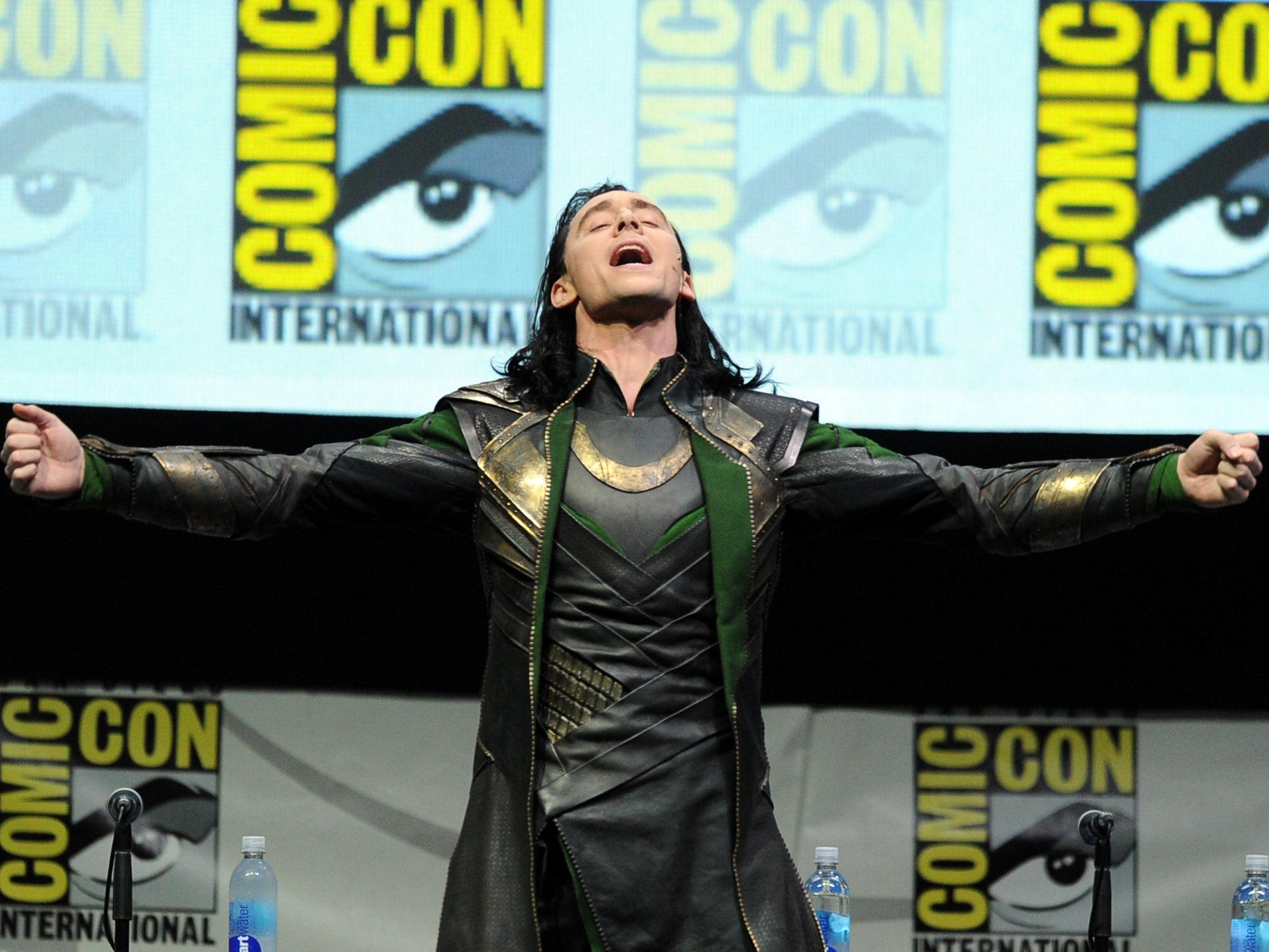
Things came to a head for Loki in 2013, when Hiddleston made a surprise appearance at the San Diego Comic-Con. “We’re in post-production for a movie called Thor: The Dark World right now,” Feige was explaining, when suddenly the lights went off and Feige’s microphone was cut off. For a brief moment, it all looked like a technical malfunction. But then, a voice rose, self-important and menacing and, yes, familiar, reciting: “Humanity, look how far you’ve fallen, lining up in the sweltering heat for hours, huddling together in the dark, like beasts!” At this point, the lights went on, revealing Hiddleston in character and in costume. The crowd was delighted. Cheers rose. Cameras flashed. And as Hiddleston struggled to keep a straight face, fans began chanting – properly chanting – “Loki! Loki! Loki!”
The moment escalated from there, with Hiddleston, still in character, urging the crowd to “say my name”, and one man shouting at him that “my wife loves you!”. The sequence could have been disastrously cringy, but it was pure raucous fun – taking everyone, Hiddleston included, by surprise.
“It was like walking into a wall of sound,” he told the now-defunct HitFix the following month. “It felt like a wave. You know when you’re swimming in the ocean, and an enormous wave washes over you, and you kind of stand up, and it breaks across your front or your back, and it’s bigger than you expected? It felt a bit like that.”
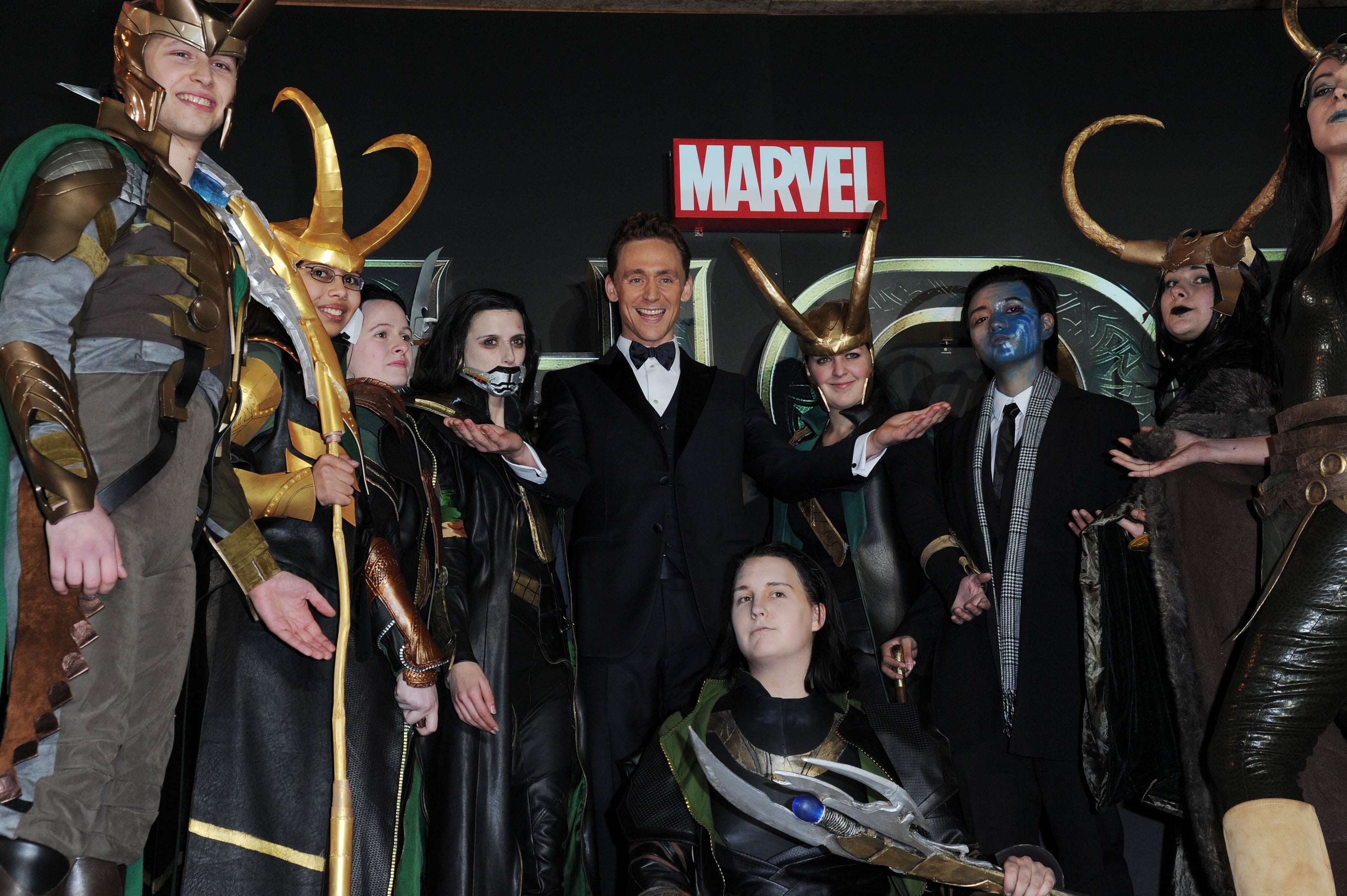
So even though Loki seemed to die when Thor: The Dark World came out a few months later in 2013, he ended up cheating the Grim Reaper, returning in the 2017 Thor: Ragnarok, as well as Avengers: Infinity War (2018) and Avengers: Endgame (2019). In Ragnarok, he began a redemption arc, joining forces with Thor against their surprise sibling Hela and the fire demon Surtur. “Maybe you’re not so bad after all, brother,” the God of Thunder muses at the end of the film, to which Loki himself concedes: “Maybe not.”
But Loki’s morality, of course, has ebbed and flowed to this day. In Infinity War, he seemed to die for good – and a true hero’s death too – in an ill-fated attempt to deceive Thanos, falsely pledging his allegiance to the supervillain before aiming at him with a dagger. Endgame brought us back to Loki’s mischievous essence in a time-travel sequence, in which the Loki of The Avengers steals the Tesseract – the wrinkle in time that is now the basis for Loki, the TV series. And just like that, his redemption arc is erased. Back to the God of Mischief we go.

“He’s complicated, and he’s so bad,” says Mosaku. “There’s a vulnerability there, and you understand why he’s bad in a way. Tom’s got a really good balance between the charm, the comedy, the drama, the pain. He can play all of it so well.”
This is the appeal of Loki at its core: Avengers such as Captain America, Doctor Strange, or even Iron Man, have misfit qualities to them, but they always transcend them. Steve Rogers begins as a frail Army reject, but becomes a super soldier. Stephen Strange loses his career as a surgeon after a car crash, but becomes a sorcerer. And Tony Stark, well, his father never quite loved him the right way – a frustration Stark sublimated by becoming Iron Man.
Loki, however, never fully transcends his mischievous inclinations. He evolves just enough to remain interesting, but the question of his morality is always on the table. He is a misfit who stays a misfit. It’s not hard to see the appeal in that characterisation. Things with Loki are rarely what they seem, and they never reach a state of permanence. He is, after all, Loki of Asgard. And your wife loves him.

Join our commenting forum
Join thought-provoking conversations, follow other Independent readers and see their replies
Comments